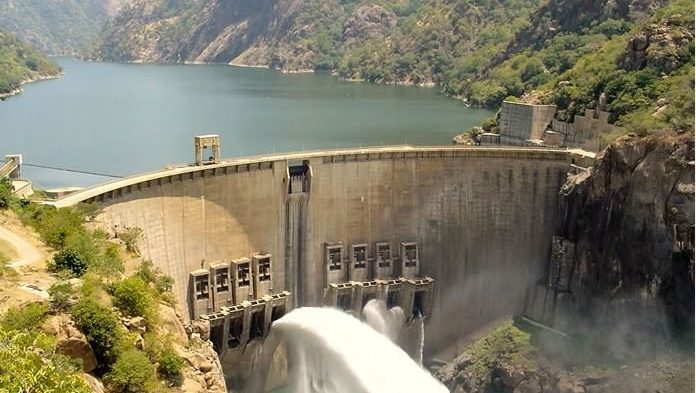The release of massive volumes of water from Lagdo Dam in Cameroon since August 14, 2023, which triggered fear of widespread flooding in 11 states in Nigeria, has been stopped by managers of the dam, the Federal Government announced on Tuesday.
This was announced at a press briefing in Abuja that focused on the August 2023 water releases from Lagdo Dam, as the government revealed that the spilling of water from the facility was stopped by 11 a.m. on Monday, August 28, 2023.
The Director-General, Nigeria Hydrological Services Agency, an agency of the Federal Government, Clement Nze, who disclosed this to journalists, explained that in Nigeria, the month of June every year served as the beginning of a new hydrological year in the River Niger Basin.
He said the River Niger Basin covered nine countries in West and Central Africa, including Benin, Burkina Faso, Cameroon, Chad, Cote D’Ivoire, Guinea, Mali, Niger and Nigeria.
Under the umbrella body of the Niger Basin Authority based in Niamey, Niger Republic, Nigeria is downstream of all the countries in this basin, according to Nze.
He said, “The months of July, August September and October of every year signify periods of heavy rainfall, flooding and flood disasters in most parts of the country. The Lagdo Dam is located on the Benue River In the Niger Basin.
“The Cameroonian authorities commenced the release of water from Lagdo Dam by 10.10 a.m. on August 14, 2023. This was communicated to the DG of NIHSA on August 23, 2023, by the Cameroonian hydrologist in charge of the dam.”
Nze said the release of water from the dam commenced at the rate of 200 cubic metres per second, which was about 18 million cubic metres of water per day.
“According to the (Cameroonian) official, this exercise will continue for the next seven days seeing that the reservoir level currently stands a 213.46m and the maximum permissible level of the reservoir is 214.02m.
“The said official also added, ‘We will continue to observe the situation. if there is no major inflow, we will close the spillway in the coming days. The situation is under control.’”
The NIHSA boss stated that by August 25, 2023, the water releases from the reservoir had reduced to 50 cubic metres per second, which was a normal reservoir operation and was too negligible to cause any flooding downstream.
“However, by 5.46 pm yesterday, August 28, 2023, the hydrologist in charge of the dam notified the Director-General of NIHSA that they stopped spilling water by 11.00 am that same yesterday,” Nze stated.
He also stated that there had been steadiness in the flow of the River Benue system, as “the water level at our monitoring station in Makurdi, Benue State is 9.01m as against 9.68m that was recorded on the same date in 2022.






